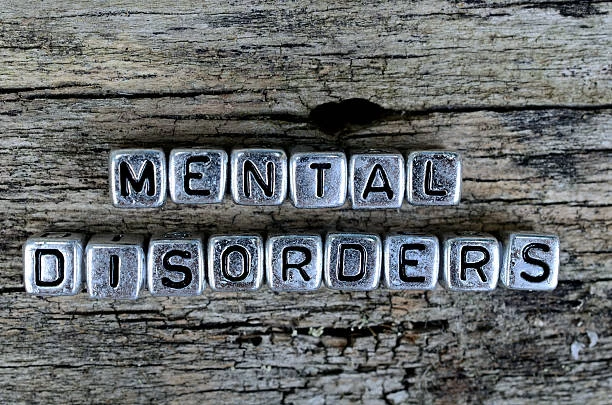Mental Disorders and Disability Insurance Benefits in Bucks
Certain conditions, including mental disorders, can qualify a claimant for benefits according to the Social Security Administration (SSA). The guidelines used to determine if certain conditions meet the standards necessary to qualify are listed in the SSA’s Blue Book.
There are nine listed categories of mental disorders detailed in the Blue Book, which we have listed here:
- Affective disorders
- Anxiety Disorders
- Autism and related disorders
- Intellectual disabilities
- Organic Mental Disorders
- Personality disorders
- Schizophrenia, paranoia, and psychotic disorders
- Somatoform disorders
- Substance addiction
Each category consists of a list of specific disorders, and each of these is evaluated according to its own particular set of criteria. For an individual to qualify for disability benefits, they must meet the listed criteria, show that the sum total of all their disabling conditions is equal to or exceeds the listed criteria, or the disorder completely hinders them from engaging in substantial gainful activity.

In addition to meeting the criteria, the claimant must be able to show that they are receiving and complying with standard treatment protocol. It is also important for the claimant to continue treatment throughout the Social Security disability benefits claims process.
When Mental Illness is Considered a Disability
A mental illness is considered a disability by the SSA if the claimant is able to meet the medical requirements for mental illness in the SSA’s Blue Book. More than 2 million Americans received Social Security Disability benefits based on mental disorders in 2019, which is approximately 1 in 5 recipients.
Under the nine categories of listed disorders, there are various mental health conditions listed, including, but not limited to posttraumatic stress disorder (PTSD), bipolar disorder, and schizophrenia. In order to be approved for benefits, the applicant’s illness will need to match one of the qualifying mental health conditions. Additionally, it will be necessary to prove that the mental illness has prevented, or will prevent, the claimant from working full time for at least a year.
Once this criteria is met, the SSA will consider the mental illness a disability and the claimant will be eligible to receive Social Security disability benefits. While all of this sounds rather clear-cut, there are many possible obstacles that you may encounter as you prepare your claim. That is why we recommend that you work with a knowledgeable Social Security Disability Attorney in Bucks County if you are planning on filing for Social Security Disability benefits.
Mental Health Disability Payments
Because every individual’s condition affects them differently, disability payments for those with a mental health condition will vary. The average Social Security Disability Insurance (SSDI) payment for an adult recipient in 2021 was $1,277 per month, and the average Supplemental Security Income (SSI) payment was $586. If you are going to recieve benefits for a mental health condition, there are other factors that will influence your monthly payment, including your income, when you apply for SSI benefits.
As illustrated above, payments made through the SSDI program are usually larger than those received through the SSI program. While the SSI benefits program is a needs-based initiative, intended for disabled individuals with extremely limited income and resources, SSDI benefits are paid to those who worked full-time. SSDI recipients must have accumulated enough work credits to qualify – but are no longer able to work due to a disabling condition.
Listed Disorders
Below, you will find a brief description of the nine main categories of mental disorders listed in the SSA Blue Book.
Affective Disorders
Depending on the type of affective disorder, the specific requirements to qualify for benefits will vary. However, in general, you will need to provide medical documentation showing that the disorder impairs your ability to function despite treatment. You will need to show that you either:
- Have been receiving treatment for two years and are still unable to function outside of a supportive environment or
- Have medical documentation providing sufficient evidence that your mental condition leaves you unable to work in any work environment
Anxiety Disorders
In order to qualify for SSD benefits with an anxiety disorder, the medical evidence must demonstrate that you have at least one of the following:
- Persistent anxiety with appropriate symptoms (i.e. apprehensive expectation, motor tension)
- Unpredictable, recurring panic attacks weekly (or more often)
- Recurring obsessions and compulsions leading to significant distress
Additionally, the evidence must show that your ability to function in normal work and social situations is significantly impacted by these conditions.

Autism and Related Disorders
In order to qualify for Bucks County Social Security disability benefits for autism or similar pervasive developmental disorders, you will need to demonstrate that the ability to engage in activities outside of a few narrow interests, communicate, and interact socially is limited by the condition. Additionally, you must be able to show that these limitations significantly impair your ability to function in work and social situations.
Intellectual Disabilities
A claimant will qualify for disability benefits based on an intellectual disability providing they have medical documentation demonstrating any of the following conditions:
- An IQ of less than 60
- Dependency on others for personal needs such as eating, bathing, dressing, and using the toilet
- An IQ of less than 70 in combination with other conditions (physical or mental) which limit the ability to function in a work environment, social situations, or daily activities
Organic Mental Disorders
An individual with an organic mental disorder will qualify for disability benefits if the medical evidence shows the disorder has continued for two years or more despite being treated. The disorder must also preclude you from performing basic work functions. Basically, you will need to demonstrate the inability to function outside of a highly supportive environment. Alternately, you may qualify if you suffer from at least one condition from each of the columns below:
|
|
|
|
|
|
|
|
|
|
|

Personality Disorders
In order to qualify for SSD benefits with a personality disorder, you will need to show that your condition precludes your ability to adapt to work or social situations, and that the condition has caused problems for an extended period of time. Additionally, the condition must cause at least one of the following:
- Aggressive behavior
- Autistic thought patterns
- Continual mood disturbances
- Dependence
- Inappropriate hostility
- Inappropriate suspicion
- Impulsive, self-destructive behavior, especially in regard to relationships
- Odd thought, speech, behavior, or perception patterns
- Passiveness
- Seclusion
Psychotic Disorders
You must have medical documentation detailing that your condition has severely limited your ability to function in a work environment for two years or more. The documentation must show that you are incapable of living outside of a supportive environment or that any change in your work situation would cause more problems.
Alternately, you may qualify if you have one of the following conditions and you can show that it severely affects your ability to function in a work or social environment:
- Catatonia
- Delusions
- Disorganized behavior
- Hallucinations
- Illogical thinking
- Incoherence
- Isolation and emotional withdrawal
- Speech significantly affected by blunt effect, inappropriate affect, or flat affect
Somatoform Disorders
You will need medical documentation showing that, by age 30, you had a history of unexplained physical symptoms that have lasted for several years in order to qualify for disability benefits with a somatoform disorder. Furthermore, these symptoms must require you to make significant adjustments to your lifestyle. You are likely to qualify for benefits if the symptoms involve loss of hearing, sight, speech, movement, sensation, or the use of one or more limbs.
Substance Abuse
You will qualify for benefits if you have medically documented evidence that your substance abuse issue causes you to meet the criteria for one of the other neurological disorders, mental disorders, or digestive disorders.
Other Qualifying Conditions
In addition to the conditions listed above, you may qualify for Social Security disability benefits if you suffer from any of the conditions listed here:
- Attention Deficit Hyperactivity Disorder
- Asperger’s Syndrome
- Bipolar Disorder
- Chronic Insomnia
- Depression
- Drug Addiction
- Dysthymia
- Eating Disorders
- Hallucinations
- Intellectual Disability
- Memory Loss
- Mood Disorder
- Obsessive Compulsive Disorder
- Panic Attacks
- Postpartum Depression
- Post Traumatic Stress Disorder
- Schizoaffective Disorder
- Social Anxiety
Leventhal, Sutton & Gornstein – Dedicated, Knowledgeable SSD Attorneys
If you, or someone you love is dealing with a mental disability that precludes your/their ability to undertake any form of gainful employment, you may be eligible for SSDI or SSI benefits. While you can always go through the application process on your own, we recommend working with an experienced SSD attorney in Bucks County to ensure you receive all the benefits you are entitled to. Give us a call to book your free consultation today. We are here to help.

